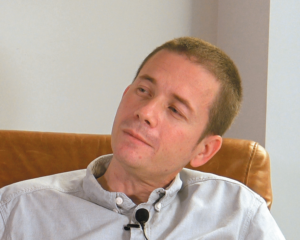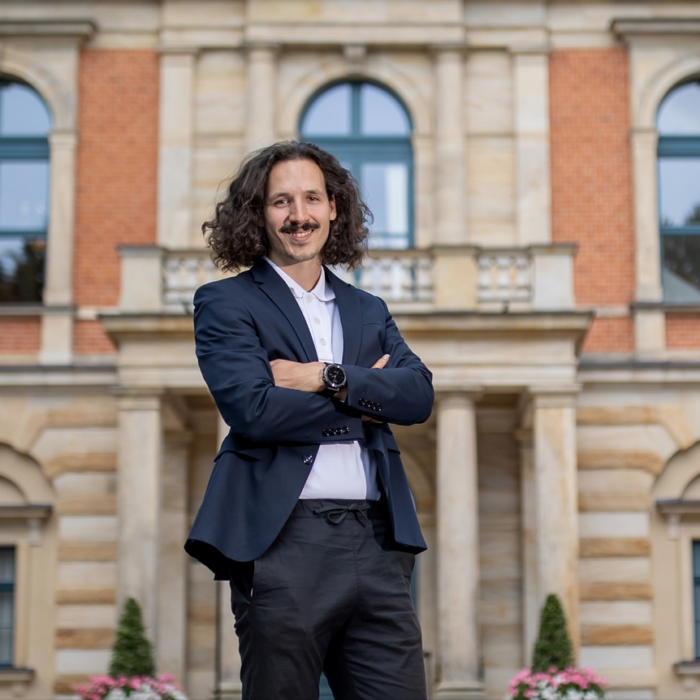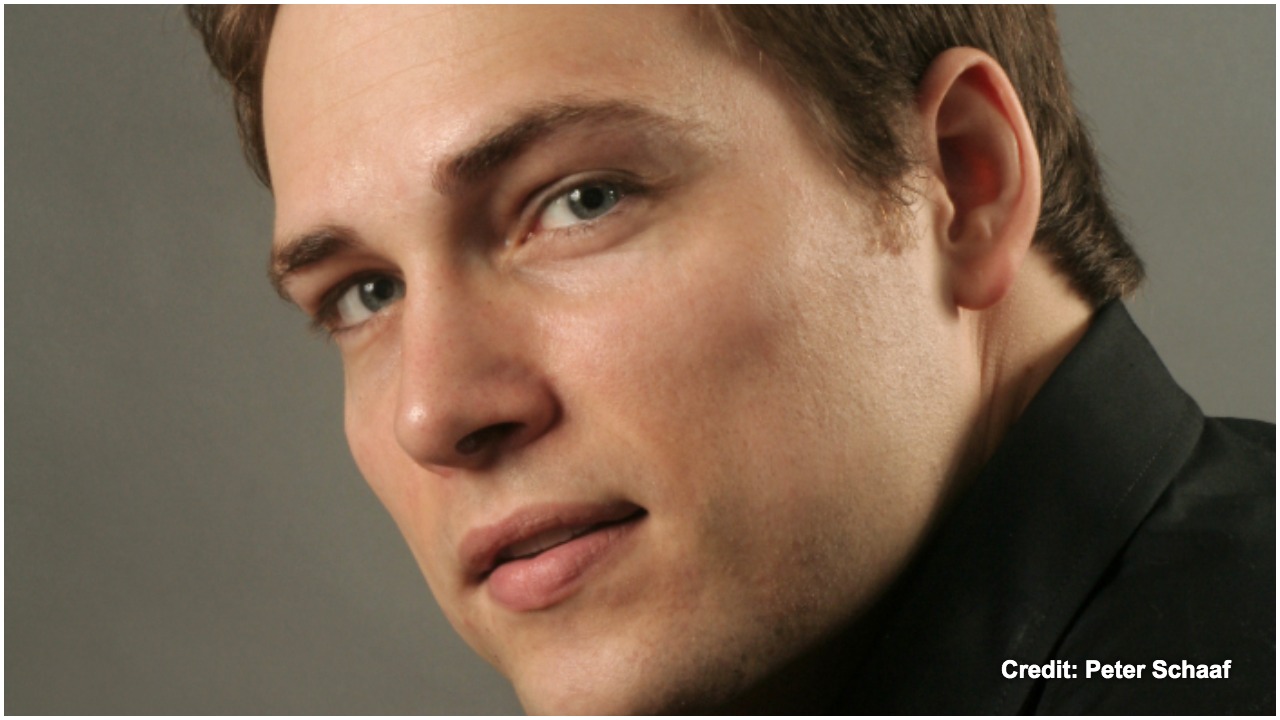
Sardinian Flavor – Tenor Piero Pretti On Maintaining Vocal Versatility & The Complexity of Pinkerton
By Dejan VukosavljevicOne day, as a 16-year-old, tenor Piero Pretti, was invited by Fabrizio Ruiu to audition for a polyphonic choir.
That moment would have tremendous implications for the Sardinian tenor. Not only would Ruiu, a close friend from childhood, become the best man at his wedding, but this audition would change Pretti’s life forever.
“I fell in love with it,” he told OperaWire about his subsequent experience as a member of the ensemble. The Choir’s director Franca Floris then pushed him to pursue vocal studies, which he took on at the local music school of Nuoro.
From there he went to Cagliari’s Opera House at the age of 18, and his first roles, concerts and master classes followed. The rest, as they say, is history.
First Steps
Young singers frequently struggle to find their first engagements, and it can be a lengthy and difficult process. It could also reveal what the future could hold in the medium or longer term. For Pretti, it was an experience to remember.
“I had my first engagements in the early 2000s,” he reminisced. “It was a small touring company and I travelled all over Europe for three months, including Norway and the United Kingdom, singing ‘La Bohème’ every other day, and also being on the road for 800 km every day in a van with other singers. I remember it very well, and there I understood I could make it a profession.”
From there Piero Pretti quickly advanced to singing the role of Alfredo Germont in “La Traviata” in Jesi and Treviso, followed by the title role in “Poliuto” in Sassari, Manrico in “Il Trovatore” in Ravenna, and Achile in “Iphigénie en Aulide” at the Rome Opera under the baton of the famous director Riccardo Muti.
Performing with Muti was a huge boon to the singer in building up his artistry, with that relationship continuing to this day.
“I was very lucky at the beginning of my career. Muti chose me to sing the role of Achille in ‘Iphigénie en Aulide’ at the Rome Opera, with Yannik Kokkos as the stage director. That experience changed my life. The perception of the theatre, the very idea of studying and preparing for a role. Since then Maestro Muti occasionally invites me to his concerts and when I go I am like a kid with his favorite toy,” he revealed.
In 2011, he sang the role of Arrigo in “Les Vêpres Siciliennes” at the Teatro Regio in Turin and he performed a program of Verdi arias. And then came his first performance in Milan at the celebrated Teatro alla Scala.
“I was very excited to be able to walk the Temple of Opera, La Scala. It was a dream coming true. I could breath energy and I felt great responsibility, but inside a theatre I found a great and welcoming family,” he exclaimed. “On that stage you feel the energy of past and present singers, a place full of true energy.”
The debut was a massive success as the tenor has since been invited back to La Scala to appear in such operas as “Lucia di Lammermoor,” “Rigoletto,” “Un Ballo in Maschera,” “Anna Bolena,” “Il Pirata,” and “Luisa Miller.”
But this first experience at the famed opera house not only proved a major career milestone for the tenor, but also a personal one as well. It was this time that he met ballet dancer Antonella, with whom he felt in love immediately. She is now his wife and the mother of their son Michelangelo. They now live in Milan.
An Expansive Repertory
One look at Pretti’s repertory will deliver one big conclusion – he is a diverse singer that has found success in both lyric and spinto roles.
His major interpretations include the Duca di Mantua in “Rigoletto,” King Gustavo III in “Un Ballo Di Maschera,” Lord Percy in “Anna Bolena,” Rodolfo in “La Bohème,” Alfredo Germont in “La Traviata,” Sir Edgardo di Ravenswood in “Lucia di Lammermoor,” Manrico in “Il Trovatore,” Ismaele in “Nabucco,” and Calaf in “Turandot,” among others.
Most people would question how a singer can shift from Edgardo in “Lucia” to Calaf in “Turandot,” even question the viability of such a choice in a singer. But Pretti purports that this versatility is not only essential to his artistry, but also his voice.
“I try to stay as close as possible to my vocal range. Understanding how far you can go and you can dare on the various repertoire is an intriguing job,” he noted.“For example, ‘Madama Butterfly’ and ‘Il Pirata’ are opposite on a vocal and technical standpoint, but I find it really interesting and satisfying to mold my vocal performance according to the production. It’s a choice that comes from my training and my teacher Gianni Mastino, to whom I owe everything I know about singing and about my own voice.”
He also noted that in order to achieve this vastness of repertory, he is constantly studying and researching the care and maintenance of his voice.
“I take care of my voice by studying, researching and maintaining. I don’t know any other ways or other methods. And especially vocal rest,” he said before adding that he emphasizes a normal life as essential to his career and its development. ” Having some peaceful holiday time surrounded by the love of my family and my friends, enjoying my hobbies, diving into nature, the sea, the mountains. Your physical and mental health shows through your voice and it’s important to preserve it. It’s our duty and obligation.”
A Big Debut
After performing in literally every major opera house, Pretti is slated to make his big Metropolitan Opera House debut on October 11, in one of his signature roles – Pinkerton in Puccini’s opera “Madama Butterfly.”
Pretti has taken on the role of the American officer in Bilbao, Munich, Paris, Vienna, Zürich, Trieste and Napoli, allowing him ample opportunities to develop his interpretation of a complicated character.
“On the emotional side, Pinkerton might seem easy and superficial, but I don’t believe it is so schematic and simple being able to express his superficial approach filled with youthful exuberance,” Pretti noted. “He is nonetheless a Navy lieutenant, therefore he has been trained in the army, his attitude reflects that. And then we have the third act. Is he really repentant? Does he really understand what he’s done? In any case he runs away, and bids farewell to the ‘fiorito asil (the flowery refuge),’ which is probably more his carefree youth, than the pain he gave Cio-Cio-San. I’d say there’s a lot to work on.”



